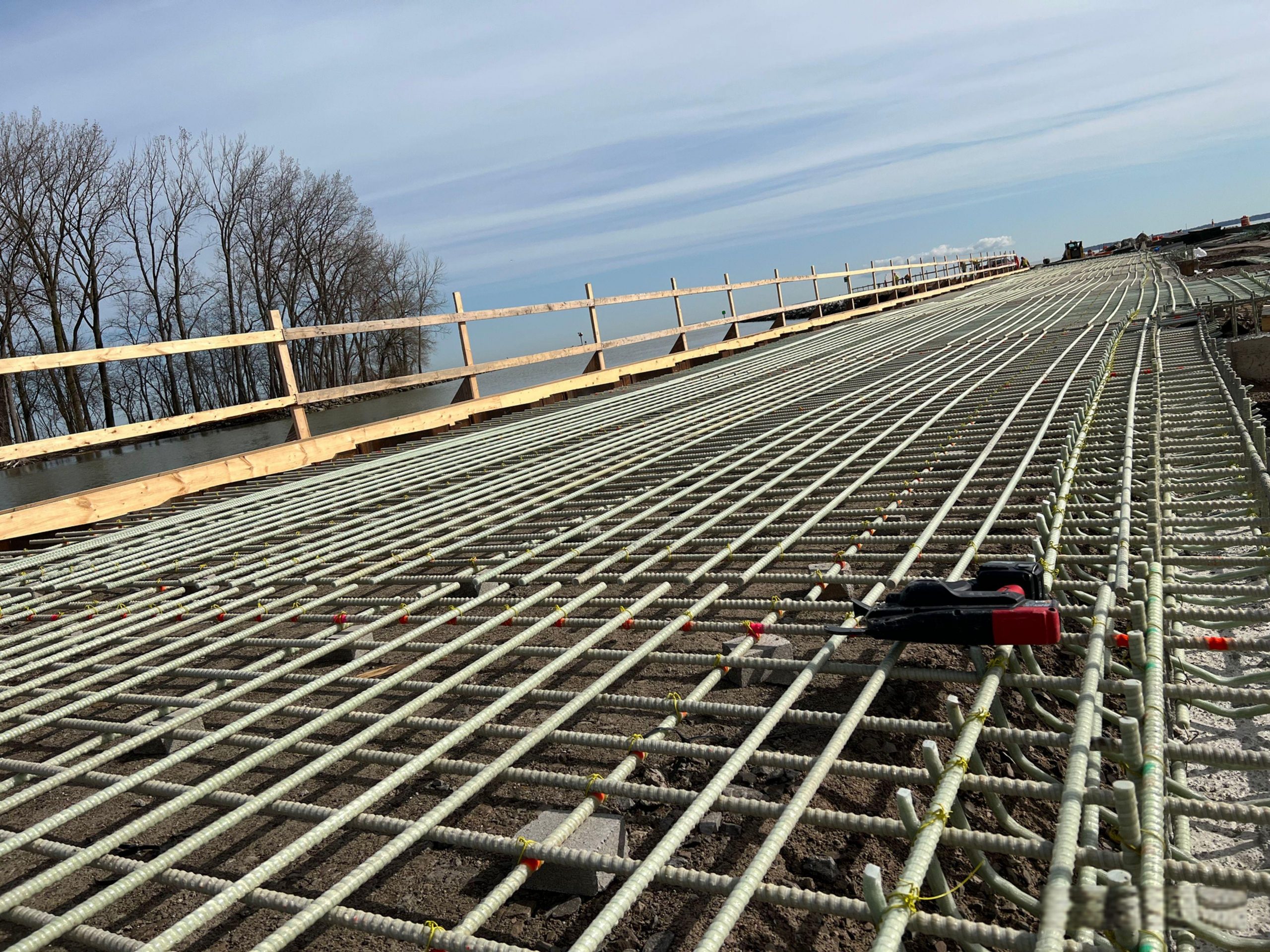- August 28, 2024
- Posted by: wellcoindustries
- Category: Rebar
Introduction
When planning a garage slab, many homeowners and contractors face a critical decision regarding the choice of reinforcement materials. Traditional steel rebar has been a staple for decades, but a newer, more efficient option is gaining traction: fiberglass rebar. Fiberglass rebar for a garage slab offers several advantages, including resistance to corrosion, lightweight properties, and ease of installation. In this article, we’ll explore why fiberglass rebar is becoming the preferred choice for garage slabs, its benefits, installation tips, and cost considerations.

What is Fiberglass Rebar?
Fiberglass rebar, also known as Glass Fiber Reinforced Polymer (GFRP) rebar, is a type of composite material made from a combination of glass fibers and a polymer resin. Unlike steel rebar, which is prone to rust and corrosion over time, fiberglass rebar is non-corrosive, making it an excellent choice for environments exposed to moisture, salt, or chemicals—like garage slabs. Additionally, it is lightweight and easy to transport, reducing labor costs and time during construction.
Benefits of Using Fiberglass Rebar for Garage Slabs
- Corrosion Resistance: One of the most significant advantages of fiberglass rebar is its resistance to corrosion. Steel rebar can rust over time, especially in environments with high humidity or salt exposure. Fiberglass rebar does not corrode, ensuring the longevity and durability of the garage slab.
- Lightweight and Easy to Handle: Fiberglass rebar is significantly lighter than steel, making it easier to transport and handle on the job site. This property reduces labor costs and simplifies the installation process, which is especially beneficial for DIY projects or smaller construction teams.
- High Tensile Strength: Despite being lightweight, fiberglass rebar offers impressive tensile strength. It provides excellent support to concrete structures, helping to prevent cracks and structural failure over time.
- Lower Lifecycle Costs: While the initial cost of fiberglass rebar may be slightly higher than steel, the long-term benefits—such as reduced maintenance costs, no need for corrosion prevention measures, and longer lifespan—often result in lower overall costs over the life of the structure.
Installation Tips for Fiberglass Rebar in Garage Slabs
- Plan Your Layout: Before installation, carefully plan the layout of the fiberglass rebar. Ensure that the spacing meets local building codes and structural requirements.
- Use the Right Tools: Fiberglass rebar requires different tools than steel. Use non-metallic cutting tools and avoid applying excessive force, as fiberglass can splinter.
- Avoid Common Mistakes: Make sure to handle the fiberglass rebar properly to avoid any damage. Do not bend fiberglass rebar sharply, as it can compromise its strength.
Cost Considerations: Fiberglass Rebar vs. Steel Rebar
When considering costs, it’s essential to look beyond the initial purchase price. While fiberglass rebar may have a higher upfront cost than steel, its benefits often lead to significant savings over time:
- Initial Cost: Fiberglass rebar is typically more expensive per unit than steel. However, this difference is often offset by the reduced transportation and handling costs due to its lightweight nature.
- Long-Term Savings: Fiberglass rebar’s resistance to corrosion eliminates the need for costly repairs and replacements associated with rust damage in steel-reinforced concrete. This can lead to significant savings in maintenance and repair costs over the lifespan of the garage slab.
- Factors Affecting Overall Cost: The total cost will depend on factors such as the size of the garage slab, local material prices, and labor rates. However, considering the long-term durability and reduced maintenance needs, fiberglass rebar often proves to be a more cost-effective solution.
Conclusion
Choosing the right reinforcement for your garage slab is crucial for its longevity and performance. Fiberglass rebar offers a range of benefits, from corrosion resistance to ease of installation and long-term cost savings. With its superior properties, fiberglass rebar is increasingly becoming the go-to choice for garage slabs. If you’re planning a garage construction or renovation, consider fiberglass rebar as a durable and cost-effective alternative to steel. Contact local suppliers or construction professionals today to explore how fiberglass rebar can enhance your project.
